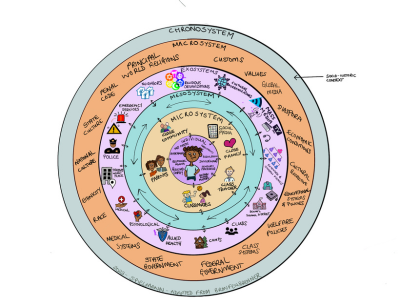Navigating Your Sensory Health Through Ecological Systems


Bronfenbrenner's Ecological Systems Theory and the Social Model of Disability both emphasize the importance of the environment and society in shaping an individual's experiences and development.
The Social Model of Disability suggests that disability is not an attribute of an individual, but rather a complex experience created by the social environment. It's not the person's physical or mental differences that disables them, but the physical barriers, attitudes, and societal norms that prevent them from fully participating in society.
Similarly, Bronfenbrenner's theory suggests that an individual's development is influenced by their environment, which is divided into microsystem, mesosystem, ecosystem, and macrosystem. This theory recognizes that an individual's experiences are shaped not just by their immediate surroundings (microsystem), but also by interactions between different parts of their life (mesosystem), external environments that they don't directly interact with but still affect them (ecosystem), and the broader societal context (macrosystem).
These perspectives emphasize the role of societal and environmental factors in shaping an individual's experiences and highlight the need for societal change to improve individual experiences and outcomes. In the context of disability, this includes removing physical barriers, challenging discriminatory attitudes, or changing policies to promote inclusion and participation.
